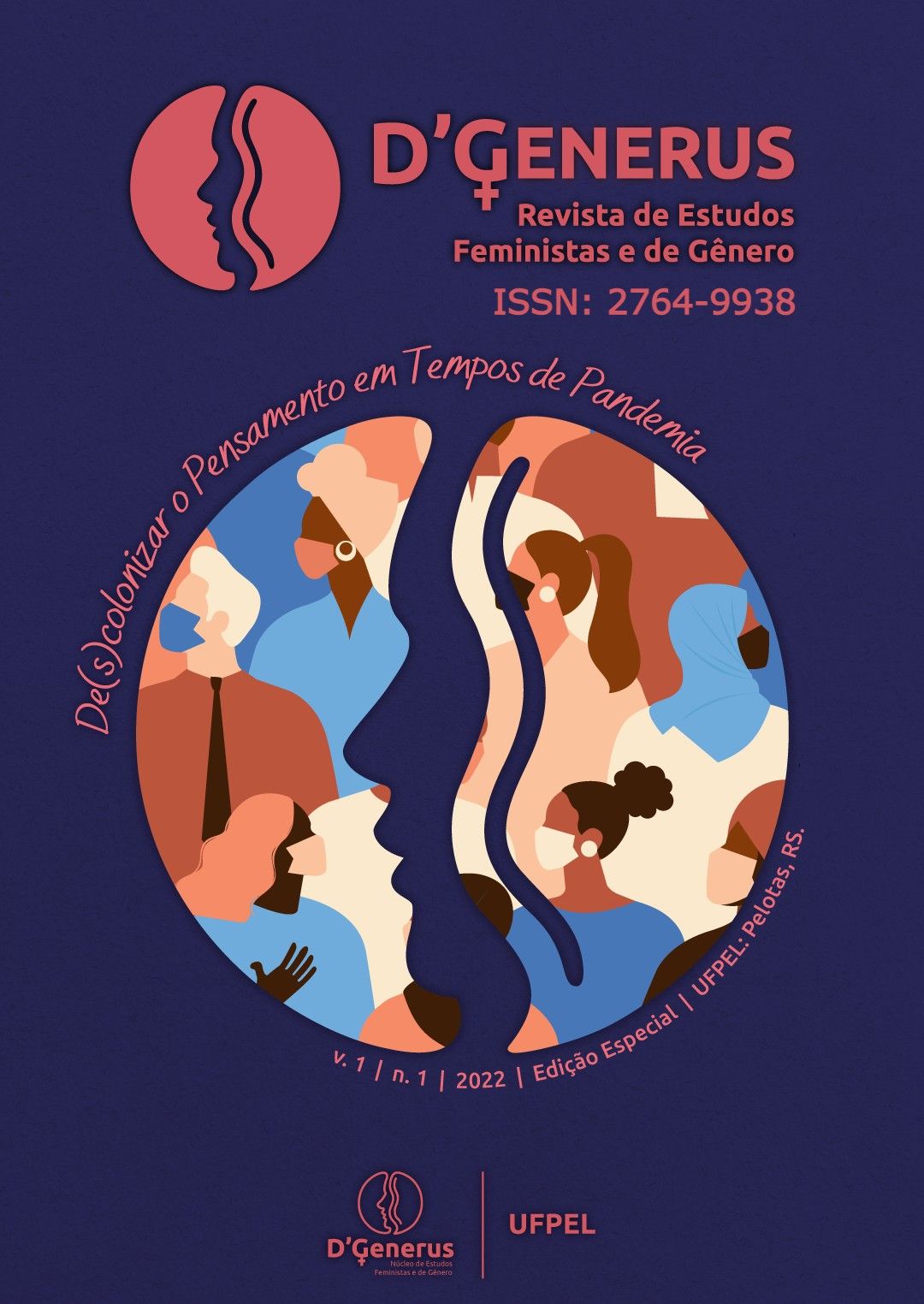CONSTRUÇÕES DA IDENTIDADE LÉSBICA: AS MÚLTIPLAS NARRATIVAS TEÓRICAS DE FORMAÇÃO DA SUBJETIVIDADE.
##plugins.themes.bootstrap3.article.main##
Resumo
Este artigo tem como objetivo analisar diferentes discursos teóricos que se propõe a identificar e descrever a formação da identidade lésbica. Para tanto, propomos uma retomada das principais narrativas da experiência subjetiva do lesbianismo, a saber, do lesbianismo político ou lesbianismo radical, do pós-modernismo e outras contribuições. Além disso, demonstraremos como o aporte teórico do lesbianismo traz uma perspectiva e contribuição importante para os temas do feminismo, de gênero, sexualidade, performatividade e de políticas identitárias. O método proposto se dará pela revisão bibliográfica das principais contribuições teóricas que versam sobre a identidade lésbica, em sua formação política, social e subjetiva.
Downloads
##plugins.themes.bootstrap3.article.details##
Para baixar a Declaração de Direitos Autorais CLIQUE AQUI
Referências
BEAUVOIR, Simone de. (2009). O Segundo Sexo. Rio de Janeiro: Nova Fronteira.
BUTLER, Judith. (2003). Problemas de Gênero. Brasil: Civilização Brasileira.
CARD, Claudia. (1990). “Pluralist Lesbian Separatism”. In: ALLEN, Jeffner (Ed). Lesbian philosophies and cultures. Nova Iorque: State University of New York Press. 125-142.
FADERMAN, Lillian. (1981). Surpassing the love of men: Romantic friendships and love between women from the Renaissance to the present. Nova Iorque: William Morrow and Company.
FRYE, Marilyn. (1993). “Some reflections on separatism and power”. In: ABELOVE, Henry; BARALE, Michele Aina; HALPERIN, David M. (Eds). The Lesbian and Gay Studies Reader. Nova Iorque: Routledge. 91-98.
HARAWAY, Donna. (1985). “Manifesto for cyborgs: science, technology, and socialist feminism of the 1980´s”. Socialist Review, v.80, p. 65-108.
JEFFREYS, Sheila. (1993). The Lesbian Heresy. Austrália: Spinifex..
JEFFREYS, Sheila. (2003). Unpacking Queer Politics: A lesbian feminist perspective Cambridge: Polity Press.
JOHNSTON, Jill. (1973). The Lesbian Nation. Nova Iorque: Simon & Schuster.
LAURETIS, Teresa de. (2007). Figures of resistance: Essays in feminist theory. EUA: University of Illinois Press.
PRECIADO, Paul B. (2018). Testo Junkie: sexo, drogas e biopolítica na era farmacopornográfica. São Paulo: N-1.
RICH, Adrienne. (2010). “Heterossexualidade compulsória e existência lésbica”. Bagoas, n.6, p.17-44.
RUBIN, Gayle. (2006). “Of Catamites and Kings: Reflections on Butch, Gender, and Boundaries”. In: STRYKER, Susan; WHITTLE, Stephen (Eds). The Transgender Studies Reader. Nova Iorque: Routledge. 471-481.
SALIH, Sara. (2012). Judith Butler e a Teoria Queer. Brasil: Autêntica.
STEIN, Arlene. (1997). Sex and Sensibility: Stories of a lesbian generation. Los Angeles: University of California Press.
WITTIG, Monique. (1992). The Straight Mind and other essays. Boston: Beacon Press.
WITTIG, Monique. (2014). “One is not born a woman”. Canvas, p.103-108. Disponível em:
